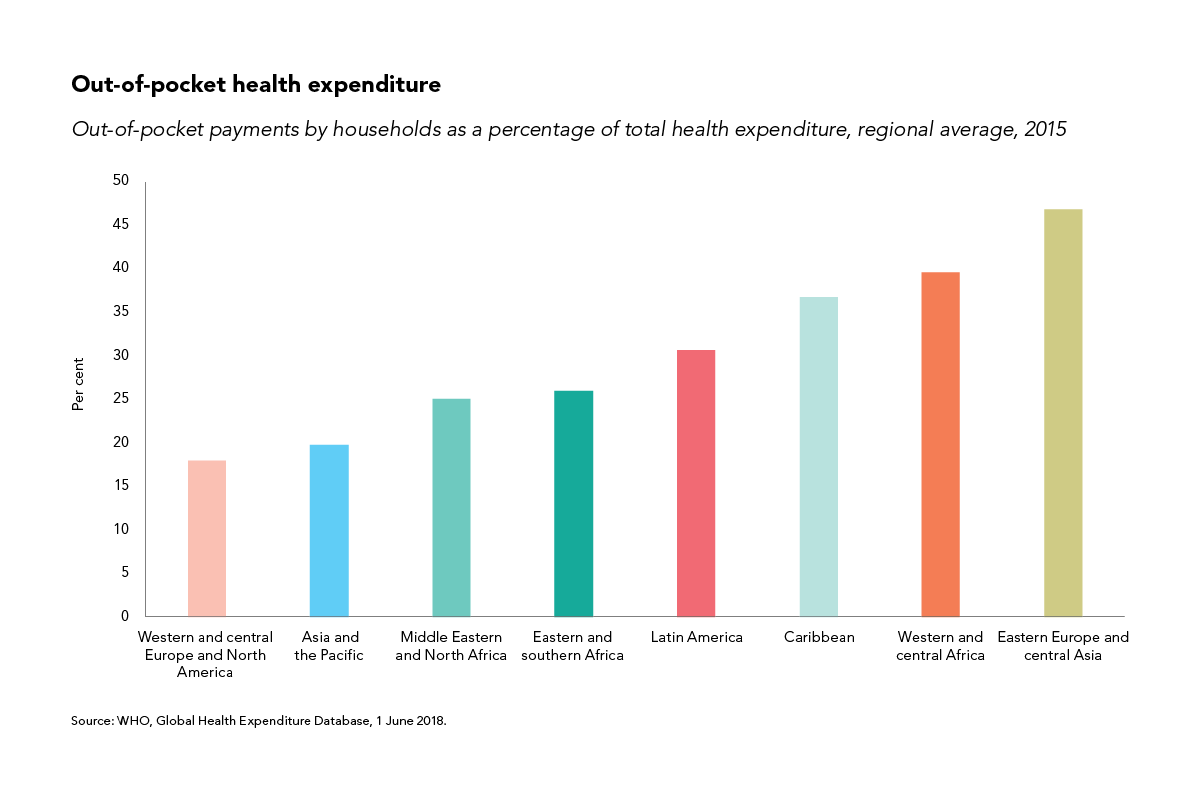User fees and other out-of-pocket expenses―defined as direct payments made by people to health-care providers at the time of service use―are a major barrier to people getting tested for HIV, to people living with HIV being treated and to people living with HIV being retained in treatment and care.
Even if antiretroviral medicines are available free of charge, fees for diagnostic tests, consultations and medicines for opportunistic infections have a huge impact on people living on a lower income. User fees have also been shown to reduce access to health services more broadly among the more vulnerable within society. Out-of-pocket payments make up substantial proportions of total health expenditure in all regions, and in some low- and middle-income countries private out-of-pocket spending is estimated to account for more than 60% of total health expenditure.
According to the World Bank, around 3.4 billion people globally who earn US$ 5.50 a day or less are just one medical bill away from sinking into poverty.




